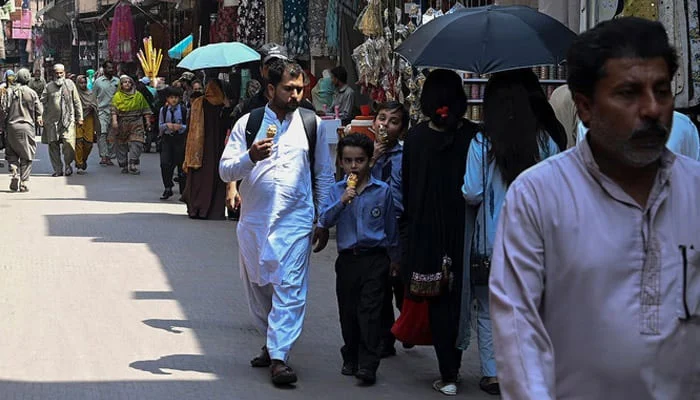By Esther Perez Ruiz
Published in The News on October 02, 2024
DESPITE a challenging external environment and the devastating floods of 2022, Pakistan has managed to restore economic and financial stability over the past year.
Since the launch of the Stand-By Arrangement in July 2023, confidence in policymaking has improved, inflation has reached its lowest level in three years, international reserves have more than doubled, and the economy is on the mend. However, further efforts are essential to meet the aspiration for a better life for a broader spectrum of the Pakistani people — a goal the IMF is happy to support.
To achieve these aspirations, Pakistan needs to shift its development model away from state intervention in economic decisions — characterized by protectionism, incentives, subsidies, and tax concessions primarily for privileged groups. This state intervention has led to market distortions, low investments and exports, volatile growth, and has trapped resources in low-productivity activities.
Social and poverty indicators as well as Pakistan’s per capita income have steadily fallen behind peers. Instead, the country should embrace policies that open up the economy, promote competition, reduce trade barriers, and streamline regulatory burden to facilitate the expansion of new and more productive activities and exports. A reformed and more efficient public sector should generate the resources needed to improve public services, build human capital, and upgrade infrastructure in a more fair and sustainable manner.
This vision is embedded in the government’s multi-year home-grown reform program, supported by the new IMF Extended Fund Facility (EFF) approved last week by the IMF’s Executive Board. The EFF endorses the government’s commitment to set Pakistan on a path of sustained, stronger, and inclusive growth through several key pathways:
Protect real incomes and provide affordable energy: This will be pursued through a monetary policy focused on combating the inflation which undermines the living standards of low- and middle-income households. Additionally, l social protection schemes for to protect the most vulnerable will be strengthened. Advancing energy sector reforms to reduce inefficiencies in generation and distribution, keeping demand in the grid, and to reduce the cost of purchasing power agreements, are ultimately the only durable ways to restore energy sector viability and reliability, benefiting all energy consumers.
Improve tax fairness: Wealthier segments of society, along with economic sectors that have remained largely untaxed in the past, are expected to contribute more to the national domestic revenue generation effort. Increased government revenues will enable Pakistan to address its priority development needs, reduce Pakistan’s indebtedness (which increases the country’s vulnerabilities), and potentially reduce other more regressive taxes.
These development priorities include expanding social protection, healthcare, education, and critical infrastructure — key pillars for social inclusion and advancement. Tax administration and enforcement measures, aided by digitalization efforts, will mean that a greater contribution to a better Pakistan will come from currently undertaxed sectors such as retail, agriculture, and construction.
Invest more in people. The planned gradual fiscal consolidation will reduce the public debt burden and the high cost of borrowing, and therefore its crowding-out effect on private credit and investment. Enhancing the role of provinces in fiscal affairs (in line with the 18th Amendment) will help balance resources and spending programmes between federal and provincial governments with a twofold aim.
First, increasing provincial resources, particularly from agriculture, property, and services taxation. Second, rightsizing both the federal and provincial governments to prioritize social and development programmes, and investments for resilience against climate-related shocks, which disproportionately affect the poor.
Spur growth and jobs: The current economic model, characterized by subsidies, protectionism, state interference, and underinvestment in social development, has resulted in low productivity, low investment rates, and underdeveloped human capital.
A more dynamic market-oriented economy and an efficient public sector are essential for creating investment and employment opportunities. This involves reducing the costs of doing business through improved public services — either via privatization or State Owned Enterprises (SOE) reform — enhancing the Foreign Direct Investment (FDI) regime, simplifying trade tariffs, and reducing protectionism to expand Pakistan’s participation in global value chains.
International evidence suggests that investing in people through basic healthcare, education, training programmes, and fostering entrepreneurship by reducing the state’s role in economic decisions can significantly enhance growth potential and inclusiveness. With the right policies to support stronger growth and a more skilled population, Pakistan can generate new and higher-productivity activities, grow the middle class, and reduce inequality and poverty levels.
For this vision to materialize, it is essential for Pakistan to consistently adhere to sound policies and advance reforms that empower the private sector to pursue profitable investment opportunities and fully utilize and upgrade the skills of its labour force — its most valuable asset.






